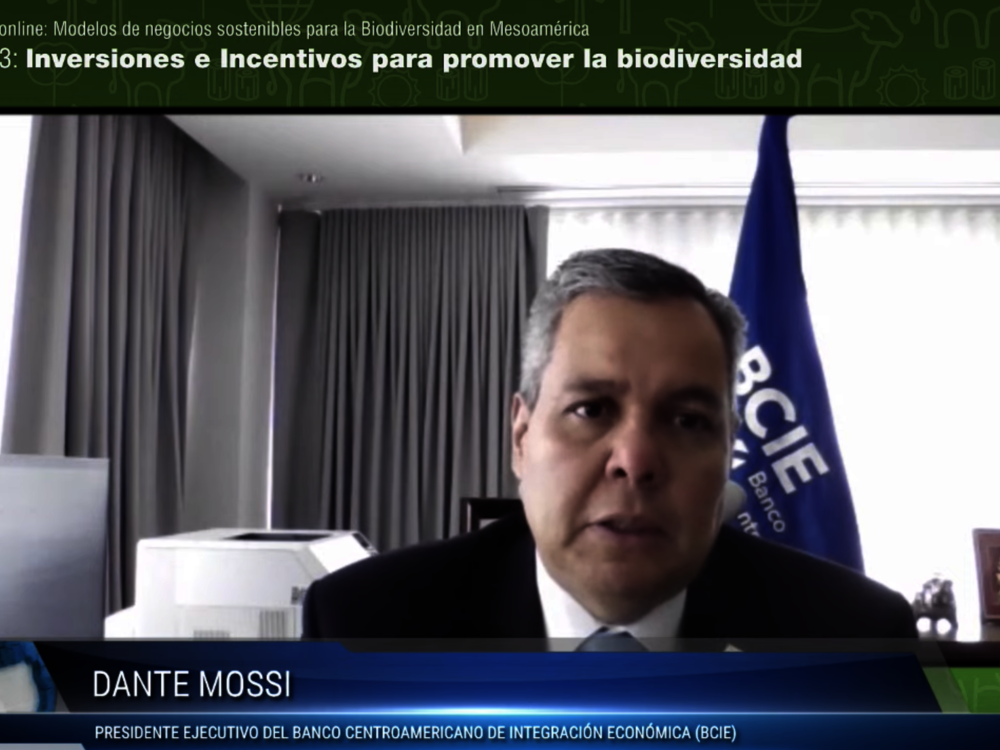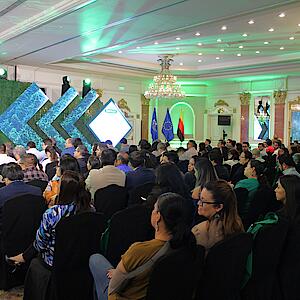CABEI Executive President highlights promotion of environmental conservation initiatives in the region

During the opening of the United Nations Food and Agriculture Organization (FAO) and Mesoamerican Biodiversity Alliance (BPM) Webinars, CABEI highlighted its contribution to regional initiatives.
Tegucigalpa, May 05, 2021.- The Central American Bank for Economic Integration (CABEI), through its strategic axis of "Environmental and Social Sustainability," included in its Institutional Strategy 2020-2024, ensures the approval of programs and projects that favor social ownership and address the need to preserve the environment.
This was emphasized by CABEI Executive President, Dr. Dante Mossi, during the opening of the "Webinar: Investments and Incentives to Promote Biodiversity" of the Food and Agriculture Organization of the United Nations (FAO) and the Mesoamerican Biodiversity Partnership (BPM), a space that seeks to create a public-private dialogue to promote the incorporation of biodiversity conservation and its use in public policies and business strategies of the private sector in the region.
"Biodiversity is under threat from overexploitation, climate change and bad public policies, but CABEI is here to collaborate with governments, the private sector, the population and other agencies to preserve sustainability and ensure the correct use of our resources," said Dr. Mossi.
He also emphasized that CABEI has contemplated investments of US$15 billion in projects and research that promote the conservation of the environment and its biodiversity.
As an example of this, he mentioned the program that supports the most vulnerable communities in the Central American Dry Corridor and the arid zones of the Dominican Republic to face the effects of climate change and increase their resilience through knowledge-based sustainable agrifood systems and capacity building.
Also, financing for the construction of the Montegrande Phase III Multipurpose Dam in the Dominican Republic, which will allow flood control, provide water for drinking water purification, as well as water for agricultural irrigation and the development of aquaculture and tourism activities.
Regarding the CAMBio Project, he pointed out that since 2008, efforts have been made to prioritize the conservation of Central American biodiversity through micro, small and medium-sized enterprises (MIPYMEs) and to remove barriers in financial institutions in order to promote a catalytic environment for biodiversity-friendly investments.
He also mentioned CABEI's participation as a strategic investor in the "Trust Fund for the Regional Coffee Transformation Initiative (ITRECAFE)", whose objective is to transform coffee growing in the SICA region into a profitable, sustainable and impactful activity.
He explained that one of the most recent approvals, following the natural emergencies caused by storms Eta and Iota, is the Central American Resilient Reconstruction Program, which aims to increase the resilience and adaptation of the countries of the SICA region to climate change.
Dr. Mossi concluded that it is of utmost importance to continue making joint efforts between CABEI and the different international organizations for the benefit of the general population and, above all, future generations and the planet's biodiversity.


![[Translate to English:] [Translate to English:]](/fileadmin/_processed_/e/3/csm_WhatsApp_Image_2024-04-18_at_2.12.23_PM__2__590ef43ade.jpeg)
